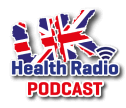I read an interesting report recently by the BBC. It had taken as its inspiration the fact that at midnight on 29 March back in 2004, the Republic of Ireland became the first country in the world to ban smoking in the workplace.
It was one of the first moves in a global trend. The Irish health minister at the time, Micheál Martin, remembers a conversation on the subject that he had with his counterpart from New Zealand.
She told him that if the pub-loving Irish could bring in a smoking ban, then the rest of the world could do it too. And that is largely what has happened. In the ten years since 2004, numerous other countries have brought in smoke-free laws although there are some places where it has not happened and restrictions in countries do vary. So, a decade on, what has been the impact of this type of law on the health of nations?
With the aim of answering that question, former BBC Ireland correspondent Denis Murray and reporter Chris Page journeyed across Europe, to make Clearing the Air for BBC radio 4 that can be heard tonight at eight ‘o’clock.
They began in the Czech Republic, which has some of the most liberal smoking laws in the EU – bars and restaurants are free to permit their customers to smoke inside and football night in a Prague bar felt, to the reporters, like a time warp – a blue fog hung in the atmosphere.
They found that in the Czech Republic – which went through Nazi and Communist oppression in the 20th Century – people were very suspicious of anything that restricted freedom.
So how has the ban gone down in France – a country that is hard to associate with non-smoking? The land of Gauloises and Gitanes has had a ban on lighting up in bars and restaurants since 2007. The reporters thought that they absolutely had to pay a visit to the Musée de Fumeurs in Paris. There, the owner Raphael Freund told us that he actually thought tobacco was not something to be consumed every day. But he was sceptical about the ban – According to Murray and Page he said it had not helped people to give up.
However, Dr Catherine Hill, an epidemiologist at France’s largest cancer hospital, told the reporters that she believed the case against tobacco was unanswerable – and that governments should do whatever they could to tackle smoking.
But she said the proportion of people who smoked had not reduced since the ban had come in. And she was worried about the levels of smoking among women in particular.
“We’re just at the beginning of the epidemic,” she is reported to have said. In Dublin, Mr Martin, who brought in the Irish ban, was emphatic that it had had a beneficial effect.
“The biggest difference of all is simply the quality of life people now enjoy at public meetings, going into hotels, having their meals,” Mr Martin, the current leader of the Irish opposition, said.
Ireland is one of several countries now proclaiming a goal of a tobacco-free future – and Mr Martin thought that, eventually, a tobacco-free world could become a reality.
Dr Hill agreed that it was eventually inevitable because, she said, smoking was “just insane” – a habit that was killing millions of people.
However according to Murray and Page Axel Gietz from Imperial Tobacco – the fourth largest such firm in the world – told them that he was bullish about the prospects for companies like his.
He said that evidence from around the world shows that ever stricter regulation has not prevented a hard-core of adults – let’s say 20% – from choosing to smoke. Ambitious goals for a smoke-free society do not take this simple fact of life into account.
Whatever the future of tobacco, it is clear that the Irish smoking ban had a profound effect on the relationship between the cigarette and society.
This year, Russia will extend its smoking ban to all bars and restaurants and China plans to outlaw lighting up in public.
They are two of the world’s most populous countries – and also have some of the highest smoking rates.
Around the world, it seems that governments are still following Ireland’s lead on clearing the air.
But, it seems, even ardent health campaigners do not think tobacco is going up in smoke any time soon.
Please note that all information and content on UK Health Radio and this blog are provided by the authors, producers and companies themselves and are only intended as additional information to your general knowledge and not as a substitute for professional medical advice or treatment. So please do not delay or disregard any medical advice received due to information gathered on UK Health Radio.
UK Health Radio – the health radio station for the United Kingdom, Europe and beyond at www.ukhealthradio.com – is kindly sponsored by www.1-stop-health-shop.com
Amanda Thomas
UK Health Radio









Valerie49
2023-04-03 12:35:35
Valerie
2023-04-03 12:09:16
Clara
2020-06-12 13:37:40
Johann
2019-02-06 08:21:27
Libby
2019-02-05 01:02:08